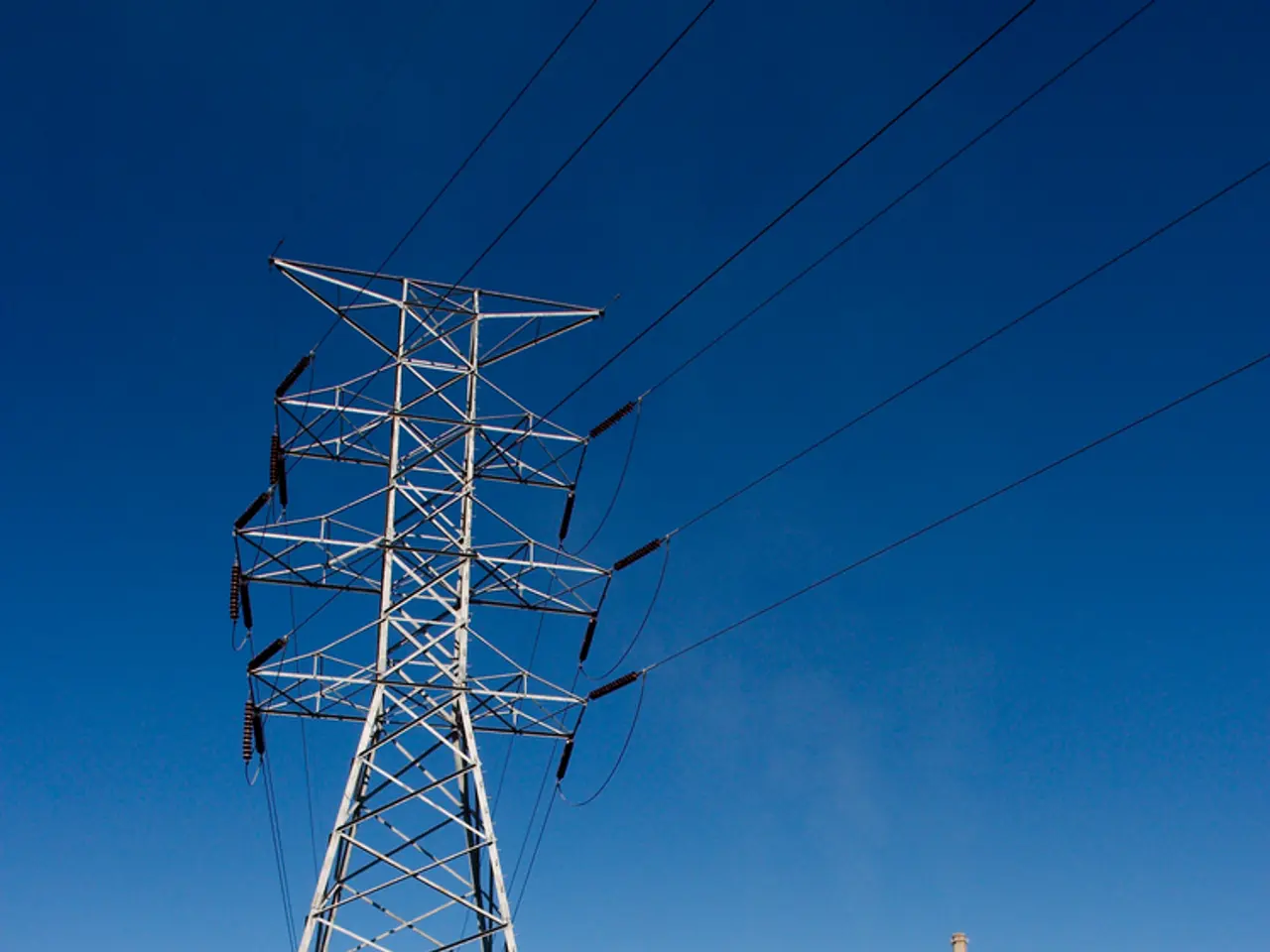Expected increase in costs for power grid network operations - Anticipated Increase in Energy Grid Charges for Consumers
In a recent development, Energy Networks, Hamburg's municipal grid operator, has announced an increase in electricity grid fees for 2024 and beyond. This move is primarily driven by the escalating costs related to grid balancing, expansion, and backup required to support the integration of renewable energy sources.
The increase in costs is attributed to several factors. Renewables integration costs, both explicit and hidden, are on the rise. In the UK, for instance, the government pays approximately £12bn per year in direct renewables subsidies, but hidden costs associated with grid balancing and backup for intermittent renewables add another £32 per MWh. These costs are expected to increase sharply in the coming years.
Regulatory bodies anticipate that the necessary investment in the network will push network charges on bills up by about £104 annually, potentially reaching £324 by 2031 to cover extra infrastructure and system costs. Surging demand from data centers and the rapid increase in Distributed Energy Resources (DERs), such as rooftop solar and storage, especially in Texas (ERCOT region), also add complexity and require further grid management and infrastructure upgrades, contributing to higher costs.
The impacts of these increases are significant. Consumers face significant bill increases, with projections suggesting an overall rise of up to £75 by the early 2030s in the UK. In the U.S., some customers may see bills rise by up to 13% or more due to utility rate increases linked to grid upgrades and demand surges.
However, efforts are being made to mitigate these costs. The Energy Networks Association (ENA) promotes flexibility services to reduce the need for costly infrastructure investment by balancing demand more effectively and integrating low-carbon sources better. Substantial investment in grid expansion and modernization is planned to accommodate more renewables and DERs, despite causing short-term cost increases on consumer bills.
In response to the criticism, Energy Networks has promised more transparency and cost control. The company is also planning the construction of a hydrogen network, with 15 kilometers currently under construction in southern Hamburg, intended for industrial use. The company, which was established in September 2021 by merging municipal electricity and gas grid operators, is also undertaking various construction projects at its headquarters in Bramfeld, although these projects have been more expensive than expected, costing 71.3 million euros instead of 53.6 million euros.
This increase in grid fees reflects the growing financial burden of maintaining grid reliability amid the rapid expansion of renewables and distributed energy, alongside rising demand driven by technology sectors like data centers. While these investments and operational costs drive bills up in the near term, efforts to enhance grid flexibility and optimize energy use aim to mitigate long-term costs and support the transition to a low-carbon energy system.
- In light of the escalating costs associated with integrating renewables and increasing demand from industries like data centers, Energy Networks has announced a policy adjustment, promising transparency and cost control while also planning to construct a hydrogen network for industrial use.
- The Employment Policy of Energy Networks is expected to include initiatives aimed at optimizing energy use and enhancing grid flexibility, as these efforts are crucial in supporting the transition to a low-carbon energy system, while also addressing the financial burden of maintaining grid reliability.




